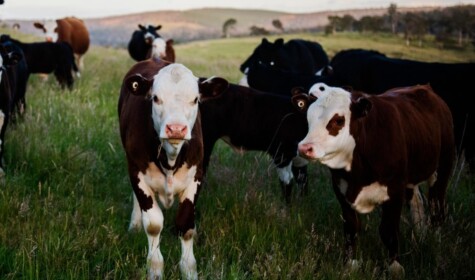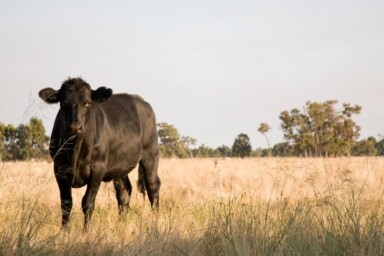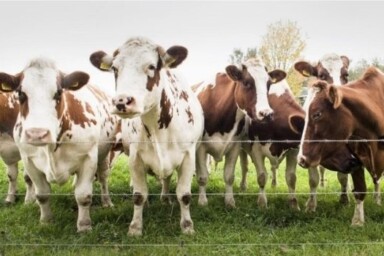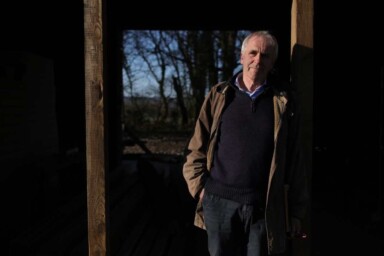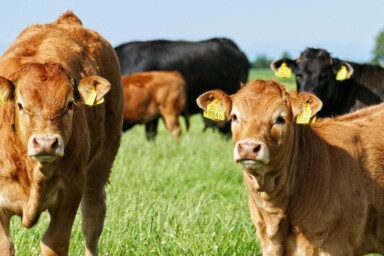The advice to ‘eat less meat’ seems everywhere these days. Often, it’s based on the notion that limiting meat or eating no meat at all makes us healthier; the other rationale is to lower our personal environmental footprints, especially in relation to climate change.
In her book Defending Beef: The Ecological and Nutritional Case for Meat, environmental lawyer and farmer Nicolette Hahn Niman argues that although these ideas are widely circulated, they lack credible evidence. She refutes health and environmental claims against meat while building a case that optimal human diets include food derived from animals, and that the most ecologically vibrant food systems need animals.
She also highlights a less tangible aspect of meat that has received far less attention: the importance that animal farming has for the quality of life for humans.
The following excerpt is from Nicolette Hahn Niman’s new book Defending Beef: The Ecological and Nutritional Case for Meat, 2nd Edition (Chelsea Green Publishing, July 2021) and is reprinted with permission from the publisher. It is excerpted from the chapter called ‘People’, in which Hahn Niman describes how the presence of animals on farms makes us better people.
Real farms and ranches, especially those with animals, also create an incomparable living environment for humans. Over my life, starting in early childhood, I’ve visited scores of farms and ranches and met hundreds of people making their living in agriculture. I’ve seen how working the land forms unique individuals. Farmers and ranchers are resourceful, handy, hardy, courageous, independent, unflappable.
Childhood on a farm or ranch is formative. It makes strong bodies and builds character. Daily, physical, outdoor labor in rain, snow, wind and heat engenders physical toughness and stoicism. Being dependent on the vagaries of nature – where months of work can be destroyed by a single fire or storm – teaches humility and resilience. Being far from town means there is usually no one to call to come fix things. Farmers and ranchers are, by necessity, mechanics, plumbers, and builders. All of this fosters creativity, handiness, and, most of all, self-reliance.
I’ve also found farm and ranch people infused with a deep and true environmental ethic. They depend on weather and seasons, staying closely attuned to the events of the natural world. They’re immersed in the cycles and rhythms of life, intensely focused on the health and well-being of the plants and animals surrounding them. Courtship, mating, birthing, caring for young, growing, injury and illness, aging, and, perhaps most important, dying – form the daily experience.
And because working the land and caring for animals creates people connected with nature, it makes some of the best environmental stewards. A country benefits by having a good portion of its population in agriculture and connected to the natural world. It’s a connection worth preserving. As a nation, something intangible, yet vital, is slipping away as the number of farming and ranching families dwindles. It is diminishing our national character.
Farm life is not akin to living in the country while telecommuting to an urban job. The farm environment does not exist without farms. And it is a human environment we should protect…The implications of our modern disconnectedness from nature and animals are manifold. I agree wholeheartedly with Richard Louv’s suggestion it broadly affects attitudes. ‘To urbanized people, the source of food and the reality of nature are becoming more abstract. At the same time, urban folks are more likely to feel protective toward animals – or to fear them.’
Beyond this, I am increasingly persuaded this disconnect is even making modern humans less comfortable with the inevitable events of our own lives. We will experience aging and physical decline. We will live through sickness, injury, pain, and, ultimately, death. Experiencing all of this through the lives of other living organisms gives us perspective that we are part of a much larger cycle of life. It prepares each of us for our own journey.
Life on a ranch lends itself especially well to gaining this understanding. Kids see, touch, hear, and smell plants and animals every day. Plants are sprouting, growing, blooming, fruiting, drying, dropping seeds, dying. Animals – wild and domesticated – are mating, being born, nursing, growing, fighting, getting sick and hurt, and dying. Owls, ravens, hawks, snakes, spiders, coyotes, bobcats, gophers, rats, cattle, horses, dogs, cats, chickens, turkeys, goats, donkeys, mules. Feathers, fur, bones, dust. These are the ingredients of our days.
Every day involves hearing and observing (consciously or not) wild animals. And much of the day will be spent caring for (willfully or not) farm animals. We provide feed and water, check on them, search for them, doctor them, and, more likely than not, we talk and sing to them. The needs, wants, and habits of creatures become intimately familiar to all who live alongside them. Thinking beyond yourself becomes second nature.
